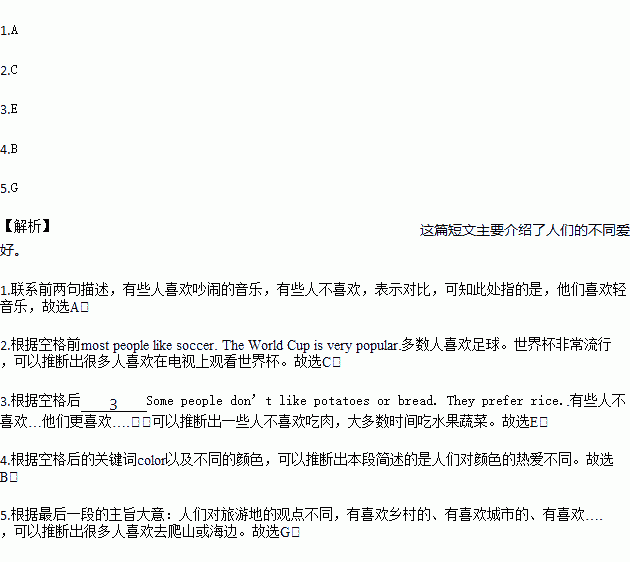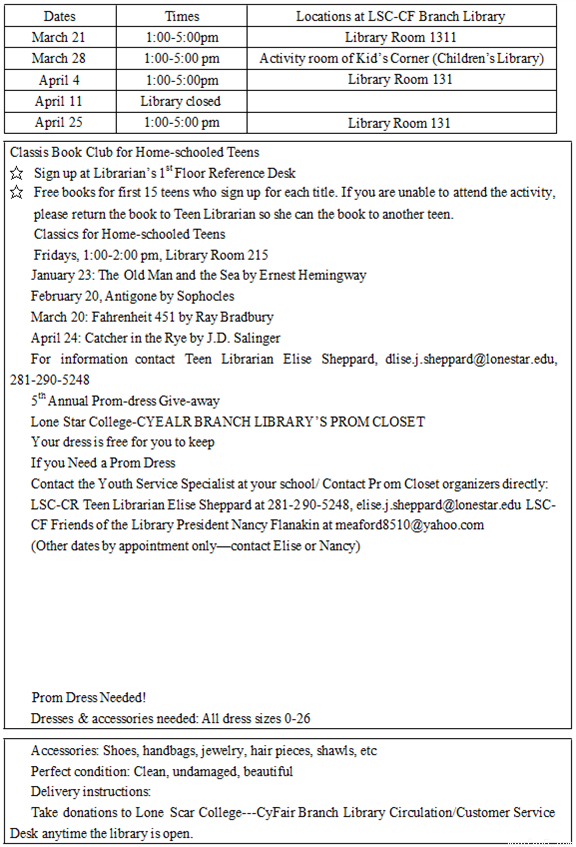题目内容
The world is an interesting place. Different people like different things. Some people like loud music. Other people don’t. 1.
Many people like sports, but they don’t all like the same sports. In some countries, cricket is a very popular sport. In other countries, it is not popular at all. No one plays it or watches it on TV. However, most people like soccer. The World Cup is very popular. 2.
Different people like different foods. Some people do not like meat. 3.Some people don’t like potatoes or bread. They prefer rice.
4.Most people have their favorite colors. Some people like bright colors. Others prefer pale colors.
Many people like travelling. Different people like different places. Some people like to go to the country. They like the fresh air. Some people like to go to the cities, because they like shopping. 5.
A. They like soft music.
B. Not everyone likes the same color.
C. Millions of people watch the games on the TV.
D. Different people like different kinds of pets.
E. They eat fruit and vegetables most of the time.
F. So they don’t raise pigs in their countries.
G. Some other people enjoy beautiful places like the mountains or beaches.
 期末宝典单元检测分类复习卷系列答案
期末宝典单元检测分类复习卷系列答案

 itional Chinese calendar;糯米——glutinous rice;竹叶或芦苇叶——bamboo or reed leaf;自尽——commit suicide
itional Chinese calendar;糯米——glutinous rice;竹叶或芦苇叶——bamboo or reed leaf;自尽——commit suicide